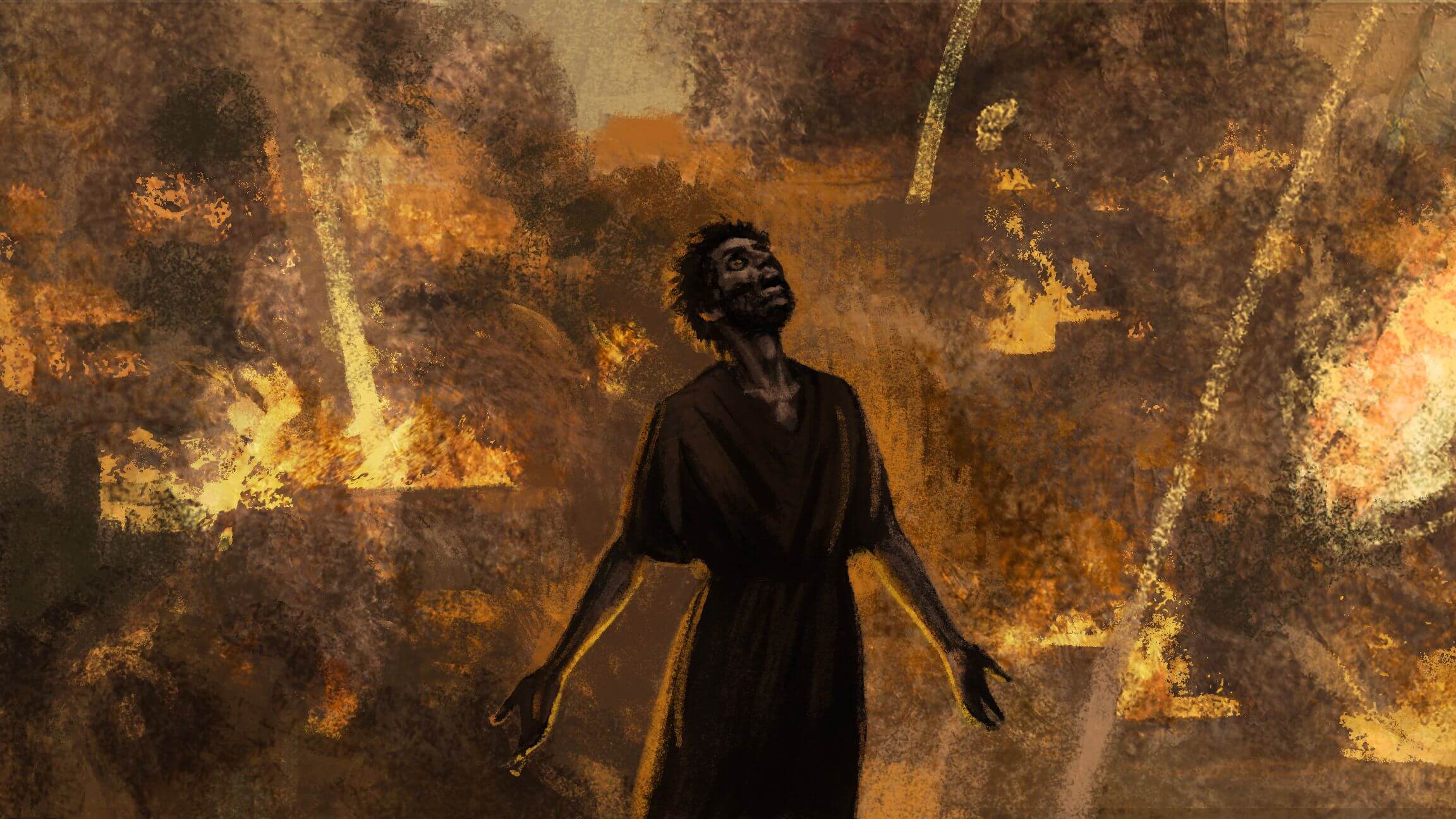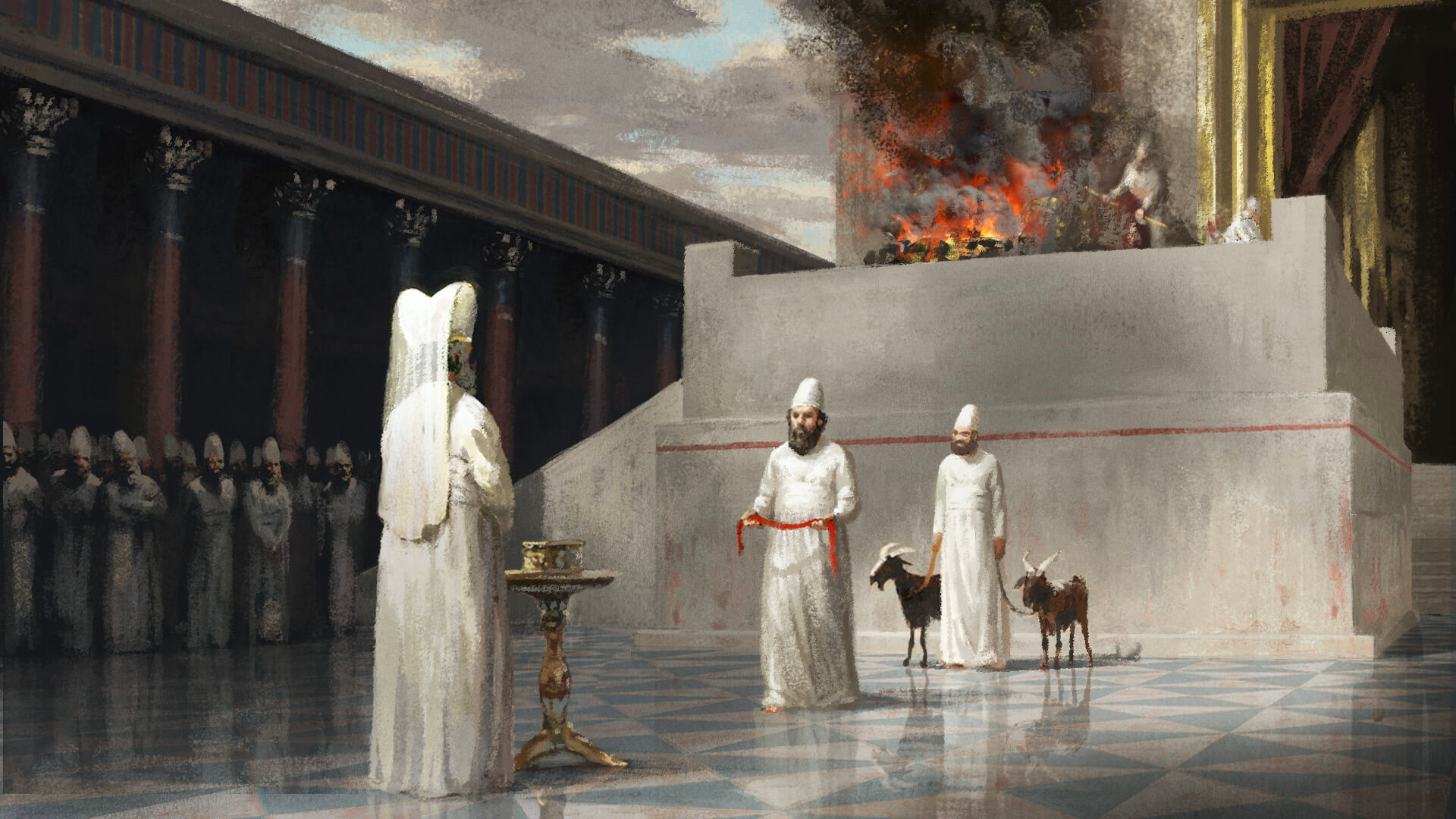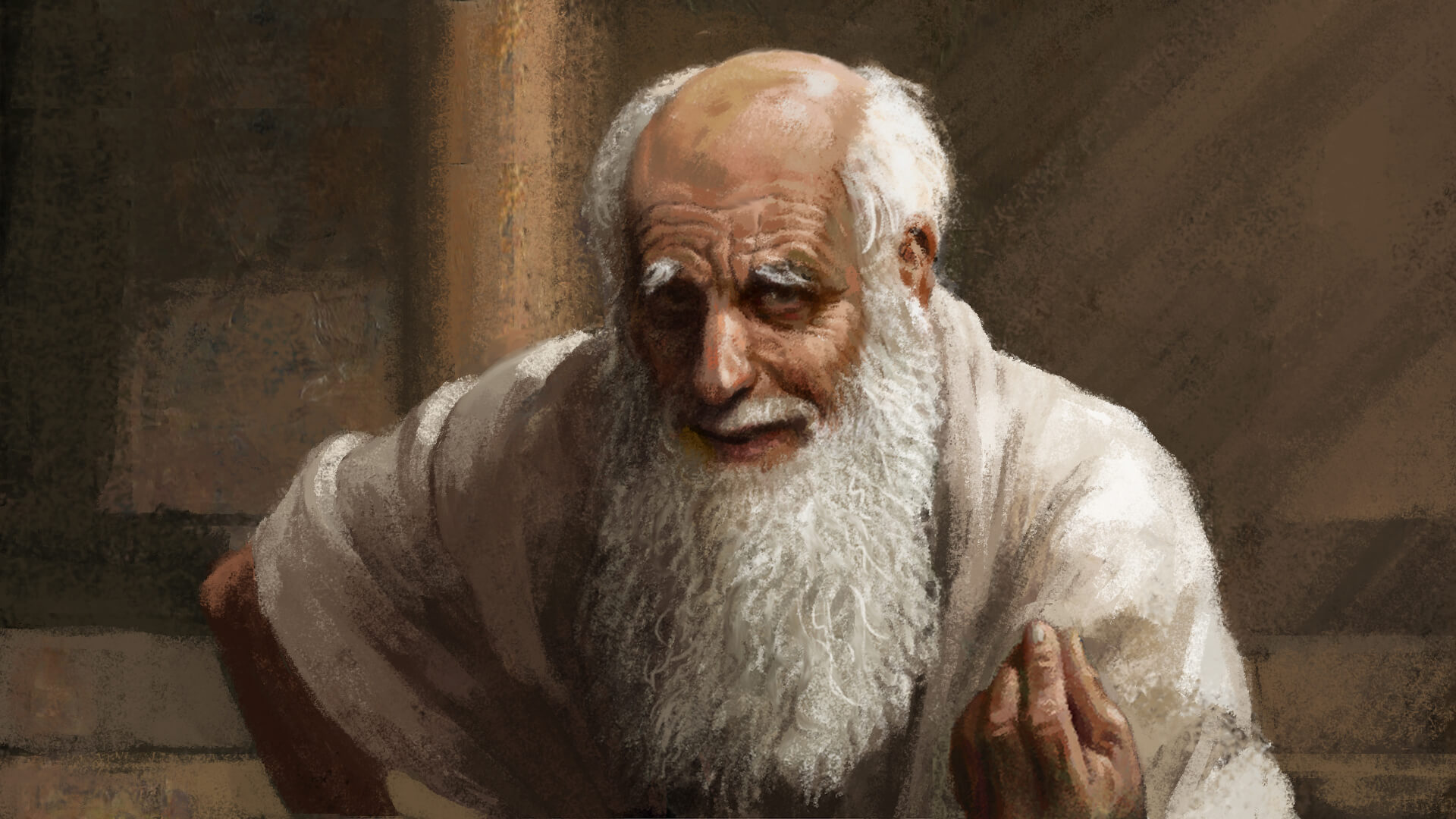Zealotry is dividing Israel — and a groundbreaking film shows it’s not the first time
‘Legend of Destruction’ details the Jewish civil war that ultimately led to the destruction of the Temple.

Ben Batich, the leader of one of the rebel groups, as Jerusalem burns. Courtesy of Legend of Destruction
Gidi Dar did not set out to be a prophet. When he began work on his film Legend of Destruction, in 2016, he was simply drawn to a collection of Talmudic stories about Jewish zealots revolting against their Roman rulers in the first century, a rebellion that triggered the destruction of the Temple.
Then, during the seven years the film spent in production, things began to shift in Israeli society.
“It’s not like we’re shooting each other in the street — not yet — but the cracks are already starting to be there,” Dar said on a Zoom call about the film. “It looks like the evening of the year 66 CE.”

Legend of Destruction follows the outbreak of the First Jewish-Roman War, which began when Jews throughout Judea began to revolt against their Roman rulers. But the different groups of Jews had varying ideas of what they were fighting for, and the divisions led to a civil war inside the stronghold of Jerusalem. The film focuses on several leaders of the disparate, warring groups of Jewish rebels, the increasingly extreme ideologies they began to adhere to, and how the sectarianism led to the eventual downfall of Jerusalem, along with the deaths of a million Jews and the destruction of the Temple.
The film isn’t just a moral tale about the dangers of extremism, though; it’s a creative experiment in filmmaking made entirely of more than 1500 still paintings that the camera pans across as actors voice the characters. Artists David Polonsky and Michael Faust referenced classical paintings by Francis Bacon, Caravaggio and Edvard Munch in scenes for the movie. And they drew from images on ancient pottery, famous Israeli figures — notably the peace activist and divisive chief rabbi of the West Bank settlement Tekoa, Menachem Froman — and “a guy in a hummus place” as the basis of their characters’ faces.

By 2021, when the film premiered in Hebrew, the resonances for modern-day Israel were obvious. Legend of Destruction was nominated for seven Ophir Awards, Israel’s version of an Academy Award, and won four.
Since then, with the judicial protests in 2023 and the outbreak of the Israel-Hamas war, divisions in Israel have only deepened. Now, the film is being released in English with voicing from big-name stars including Oscar Isaac and Elliot Gould. Screenings, pointedly, are taking place around the world in the days leading up to Tisha B’Av, the Jewish holiday commemorating the destruction of the Temple in Jerusalem at the end of the war.
The original screenings were just as politically on the nose; Dar’s co-writer Shuli Rand, a Hasidic Jew, held a screening for the secular Jews and leftists who stereotypically reside in Tel Aviv, while Dar, who is secular, hosted a screening in Jerusalem attended by a range of rightwing Israeli politicians, including both the former prime minister Naftali Bennett and the far right figures who loom large in the current government, such as Bezalel Smotrich and Simcha Rothman. (“The tent was so big I was afraid somebody was going to stab someone,” Dar recalled.)
Despite the makeup of the audience, however, Dar said that the film wasn’t meant to be a political critique, no matter how much some of the politicians in attendance might have worried it was; throughout our conversation, he carefully avoided identifying himself with any one side. Instead, he focused on the potential for internal violence when any ideology goes to extremes, and the importance of retaining a sense of togetherness and a focus on the eventual goal.
“Zealotry is a very difficult issue. On one level it’s the very highest level of the human being, we can say that Moses was a Zealot, and Abraham also — he was willing to sacrifice his own son. All the heroes of society were zealots. What do we expect of a hero? For him to go all the way for what he believes in,” Dar said. “But it’s like nuclear power. You can create a lot of light with it or destroy everything.”
















